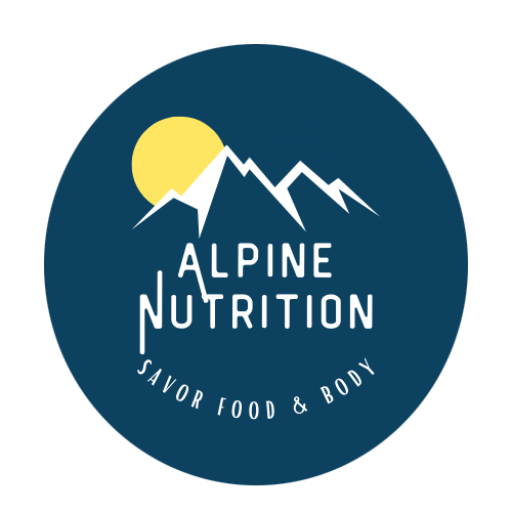If you’re like many women over 40, your capacity to do “all the things” runs out quicker than it used to in your 20s and 30s. Despite good intentions, dropping the ball on your health goals happens. This is partly because your built-in capacity booster, estrogen, fluctuates in your 40s during perimenopause and declines in menopause. Try these 3 unexpected ways to increase your capacity and meet your health goals.
“Running fashionably late, but on my way.” Friends often get this text from me.
Inevitably, I try to do all the things for all the reasons, and occasionally my over 40-year-old hamsters don’t run on their wheels like they used to. Brain fog is real.
This was my week. The hamsters were slacking. Some of them went on strike.
If you’re over 40 and in the thick of perimenopause season, you know what I’m talking about.
No amount of caffeinated tea and dark chocolate could get this blog to you yesterday instead of today.
It’s the hamster’s fault. They were spent, pushed to full capacity.
What’s your capacity like these days?
You try to do “all the things” for your job, kids, parents, friends, spouse, or partner, and squeeze whatever energy you have left into your health goals.

Despite good intentions, something has to give – like your health goals. It’s not your fault. It’s a capacity issue.
You have the interest, desire, and determination. There’s just not enough energy, mental bandwidth, or hours in the day. You’re not broken!
What can you do to support your health goals when you have limited capacity?
Shift your mindset to compassionate curiosity instead of self-judgment.
When you need to drop a ball, intentionally or unintentionally, take a step back and look at the whole context of your day. What happened? Most of the fires that pop up in your life aren’t in your complete control. Walk yourself back through your day with curiosity, not judgment. Then offer yourself compassion. You’re doing the best you can. Enough is enough. Now for the second mindset shift.
Practice not perfection
As we say in the Midlife Feast Community, lower the bar on your health goals. Practice adding gentle nutrition, joyful movement, and stress-resilient behaviors when possible. Try to do at least one of them most days instead of trying to do all three every day. Work with the capacity you have. Enough is enough.
For example, if you want to make the biggest impact on your nutrition and relationship with food, practice mindful eating. For 1 week, eat 2-3 meals without distraction. Try putting your fork down between bites. Savor the flavors and textures of what you’re eating. Ask yourself, do you like what you’re eating? What would make it better?

Don’t feel like you have enough time for mindful eating? Work with the time you have. If that’s only 10 minutes for lunch, sit down and eat without distraction for 10 minutes. Over time the practice of mindful eating will become automatic. You’ll find more enjoyment with food, better digestion, and will be less likely to snack later in the afternoon mindlessly. You can apply this same idea to exercise.
If you don’t have the time or capacity to do the full workout you hoped to do (or thought you should do), lower the bar. Maybe you walk around the block as part of your lunchtime. Or do half of the strength training session on your schedule and half of a gentle yoga session to calm your nervous system. It’s more important to move your body consistently, even if that’s consistently 5-10 minutes. “Some is better than none” when it comes to exercise after 40. For tips on how to make the most of 5-minute workouts, check out this Savor Food and Body Podcast episode with Jamie Carbaugh.
“Simplify to amplify” your health goals
This mantra is from one of my mentors. It applies to health goals too. Choose 1-2 goals to work on every month, instead of weekly. Give yourself time to get the foods, resources, and routine you need to make your goals become habits.
If you need to simplify your health goals, focus on mindful eating, gentle nutrition, consistent movement, and improving sleep. That might sound like a lot! Let’s break each of those down.
We already talked about mindful eating and consistent movement. For gentle nutrition, practice eating adequately throughout the day. Eat at consistent intervals, and eat enough food. Don’t get hung up on what’s enough food for now. Eat consistently to support steady energy and moods, and reduce the risk of fuckit eating at night. What should you eat?
Balance your meals and snacks between carbs, protein, and fat when possible. Again, don’t get hung up on the amounts of each. These macronutrients work together to provide consistent energy and increase your capacity to do all the things – or many of the things on your to-do list.

Adequate sleep is a game changer when it comes to increasing your capacity. It’s also a challenge during perimenopause and menopause with night sweats, an anxious mind, and the random 2 AM wake-up. Listen to this Savor Food and Body Podcast episode with Dr. Caitlin O’Connor ND for ways to improve your sleep quality in midlife.
If you feel fried these days and the hamsters in your brain aren’t running like they used to. Cut yourself some slack. This doesn’t mean you give up on your health goals.
It means you’re being strategic by working with the capacity you have. It’s okay to work smarter, not harder – especially during perimenopause and menopause.




